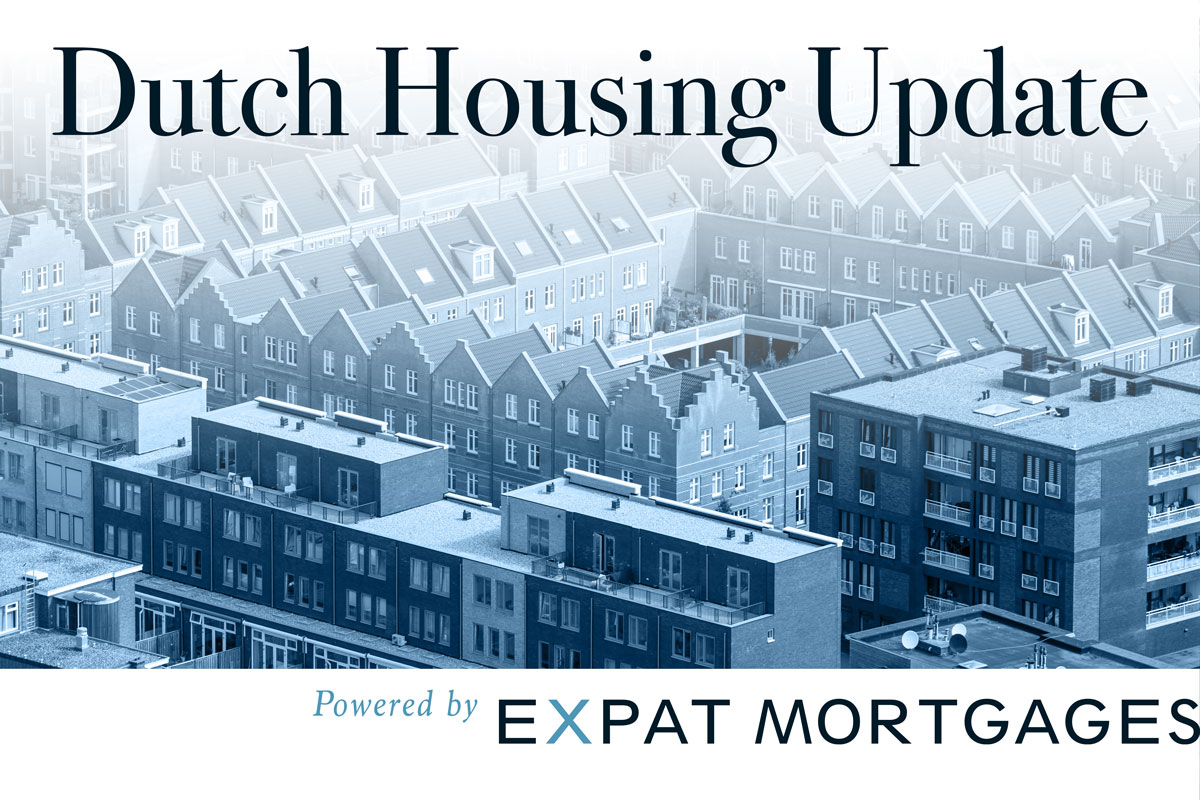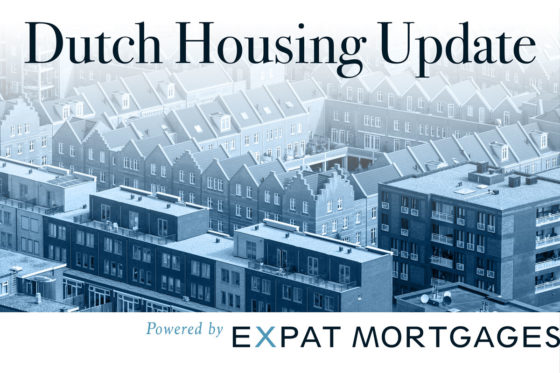Partner content
Housing newsletter: prices are rising, but interest rates continue to go down


A round-up of the latest housing news, brought to you by Expat Mortgages.
House price developments
If you look at developments on the Dutch housing market last year, you might be forgiven for thinking that coronavirus did not exist. In all, prices rose by an average of 12% and they are expected to rise by a further 4% to 6% in 2021. The reason, says Expat Mortgages’ Henk Jansen, is the ‘incredible shortage of properties’.
The current situation, says Henk, shows a total imbalance between supply and demand, and this is only increasing prices even more. ‘In addition, interest rates for mortgages are coming down at the moment because banks are trying to increase their market share, even though interest rates are already at record lows,’ he says.
These low rates might encourage you to fix your interest rate for 20 to 30 years, like the Dutch, but, Henk says, it is worth thinking about how long you are likely to stay in the Netherlands before you do. And, he recommends, if you plan to pay off your mortgage quickly, don’t set the rate too long either.
By the way, if you are monitoring interest rate movements closely and think you could benefit switching mortgages, this is something Expat Mortgages can help you with. Feel free to get in touch and find out.
Second, more news for first-time buyers
If you are under the age of 35, you’ve still got just over two months to benefit from the government’s decision to scrap overdrachtbelasting – the transfer tax which you pay on the price of your new home – for starters aged 18 to 35. From April 1, there will be a limit of €400,000 on the deal, so if you buy a property costing more, you will have to pay 2% tax on the excess.
We’ve also got more clarity about what the position is if you are buying as a couple, and one of you is over the age of 35. Unlike most over complicated Dutch tax rulings, here the solution is simple. If one of you is 37, you will have to pay 1% transfer tax, rather than 2%.
‘I’m not sure if this measure is really helping more youngsters get a foot on the housing ladder, but it is a hot topic at our housing seminars,’ says Expat Mortgage’s Henk Jansen. ‘And frankly, in the current market, anything that helps is a good thing.’
Go wild in the country
House prices may have continued to soar during the pandemic, but there are strong regional differences, and they illustrate perfectly the other impact coronavirus is having on home buyers – the drive to the suburbs and the countryside.
‘We’ve learned that we don’t need to go to the office everyday, and that space is a premium, if your home is also your office and, for some, a school,’ says Henk. ‘There is a lot of pressure on society and a stable home can help out. More people seem to be thinking about moving.’
In fact house prices rose in the province of Groningen faster than anywhere else last year, and in the village of Hardenberg close to the German border saw house prices rise 22%!
Moving out of the big cities is perfectly doable for international workers who are used to long commutes as well, Henk points out, especially if they only have to go the office twice a week. So if you are looking to buy a home, it is worth widening your search to the suburbs.
Upcoming webinars
If you would like to find out more about buying a new home in Groningen, or anywhere else in the Netherlands, feel free to join one of Expat Mortgages’ upcoming housing webinars and ask your questions. The next ones are being held on February 24 and March 4. The digital doors open at 5pm. Register here.
Energy label latest
One new requirement introduced for people who want to sell their homes at the beginning of this year was the energy label – a document which should tell you how energy efficient your home is.
Last year you could apply for a label online, but since January you have had to bring in a qualified advisor – and that could set you back as much as €300. However, there are are sorts of problems emerging behind the scenes – like the lack of qualified advisors – and home affairs minister Kajsa Ollongren has now decided that the label won’t be compulsory until July 1.
The old online certificates, by the way, are valid for 10 years.
How complicated it is to take out a mortgage in the Netherlands?
Buying a house in a foreign language might seem like a non-starter, even if you have a smattering of Dutch, but the Expat Mortgages team have broken it down into seven steps.
First up, find out how much you can borrow. Get a rough idea of how much you can spend on that home of your dreams with this quick calculator. As a very rough rule of thumb, think 4.5 times the salary of one partner and 90% of the other’s.
And if you’ve got any questions about the process of buying a home in the Netherlands, you can always check out the FAQs on the Expat Mortgages website to see if they have the answers. Drop them a line – they have an open chat line – if your question is not on board.
Thank you for donating to DutchNews.nl.
We could not provide the Dutch News service, and keep it free of charge, without the generous support of our readers. Your donations allow us to report on issues you tell us matter, and provide you with a summary of the most important Dutch news each day.
Make a donation